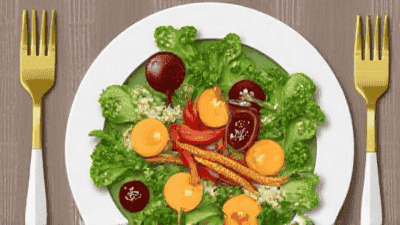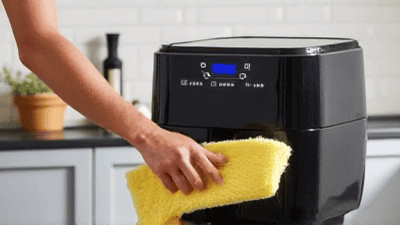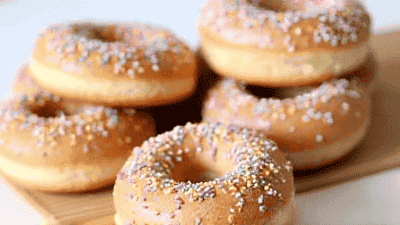How to Clean Kitchen Grease: Practical Tips
Keeping your kitchen clean is essential for maintaining a healthy cooking environment, and one of the primary culprits of mess in the kitchen is grease. Whether it’s from frying, sautéing, or just regular cooking, grease can accumulate quickly on surfaces, appliances, and utensils.

Keeping your kitchen clean is essential for maintaining a healthy cooking environment, and one of the primary culprits of mess in the kitchen is grease. Whether it’s from frying, sautéing, or just regular cooking, grease can accumulate quickly on surfaces, appliances, and utensils. Not only does it create an unsightly mess, but it can also lead to longer-term issues, such as unpleasant odors and pest attraction.
The Importance of Cleanliness in the Kitchen
1. Health and Safety
A clean kitchen is crucial for food safety. Grease can attract pests like rodents and insects, which carry diseases that can contaminate food. Additionally, grease buildup can create fire hazards, especially around cooking appliances.
2. Better Cooking Environment
Cooking in a clean space makes the experience more enjoyable. A tidy kitchen can inspire creativity, improve focus, and minimize distractions while you’re cooking.
3. Maintaining Appliances
Regular cleaning helps prolong the life of kitchen appliances. Grease can interfere with appliance function, leading to repairs or replacements you can avoid with proper maintenance.
Understanding Grease Accumulation

Grease is a byproduct of cooking fats, oils, and food particles. It can land on various surfaces, including countertops, stovetops, walls, and cabinetry. Understanding where and how grease accumulates can help you develop an effective cleaning strategy.
Common Sources of Kitchen Grease
- Frying and Sautéing: Cooking with oil releases particles into the air, which settle on surfaces.
- Grilling: Grease from grilled meats can splatter onto surfaces nearby.
- Baking: Baking fatty foods can create smoke, leading to grease on ovens and walls.
- Food Preparation: Cutting or handling fatty foods can also contribute to grease residue.
Cleaning Techniques for Kitchen Grease
Now that we understand the sources and importance of cleaning grease, let’s delve into effective cleaning techniques.
1. Dish Soap and Hot Water
Using dish soap combined with hot water is one of the simplest and most effective methods for tackling grease buildup.
Steps:
- Mix Solution: In a bowl, mix warm water with a few drops of dish soap.
- Soak and Scrub: Use a sponge or cloth to soak in the solution and scrub greasy surfaces.
- Rinse and Dry: Rinse the area with clean water and dry with a towel to prevent moisture buildup.
2. Baking Soda Paste
Baking soda is an excellent natural abrasive that can help lift stubborn grease.
Steps:
- Make a Paste: Combine baking soda and water to form a thick paste.
- Apply the Paste: Spread the paste onto greasy areas and let it sit for about 15 minutes.
- Scrub and Rinse: Use a scrub brush to work the paste into the grease, then rinse with warm water.
3. Vinegar Solution
Vinegar is a powerful natural cleaner that can break down grease and deodorize surfaces.
Steps:
- Mix Vinegar and Water: Combine equal parts vinegar and water in a spray bottle.
- Spray the Surface: Spray the solution onto greasy surfaces and let it sit for a few minutes.
- Wipe and Rinse: Wipe with a clean cloth and rinse with water.
4. Lemon Juice
Lemon juice has natural acidity that can cut through grease while leaving a fresh scent.
Steps:
- Apply Lemon Juice: Squeeze fresh lemon juice onto greasy areas or dilute it with water in a spray bottle.
- Let Sit: Allow the juice to sit for 10-15 minutes to penetrate the grease.
- Scrub and Rinse: Scrub with a sponge and rinse with water.
5. Commercial Degreasers
For heavy-duty cleaning, consider using a commercial degreaser specifically designed for tackling tough grease.
Steps:
- Read Instructions: Always read the label for instructions and safety precautions.
- Apply Degreaser: Spray or apply the degreaser to the greasy surface.
- Scrub and Wipe: Use a cloth or scrub brush to remove the grease and then wipe clean with water.
Tools for Cleaning Kitchen Grease

Having the right tools can make cleaning kitchen grease easier and more effective. Here are some essential tools to consider:
1. Microfiber Cloths
Microfiber cloths are excellent for cleaning because they trap grease and dirt without scratching surfaces. Keep several on hand for various cleaning tasks.
2. Scrub Brushes
A variety of scrub brushes, from soft to stiff bristles, can help remove stubborn grease from different surfaces. Choose the right brush for the task to avoid damaging materials.
3. Cleaning Sponges
Sponges with scour pads are useful for scrubbing greasy pots and pans, while soft sponges are better for delicate surfaces.
4. Spray Bottles
Using spray bottles for homemade cleaning solutions, such as vinegar or lemon juice mixtures, allows for easier application and control when cleaning.
5. Gloves
Protect your skin from harsh chemicals and grease by wearing rubber or disposable gloves when cleaning.
6. Bucket
A bucket is handy for carrying cleaning solutions or rinsing cloths during the cleaning process.
7. Old Toothbrush
An old toothbrush is perfect for cleaning small crevices and hard-to-reach areas that accumulate grease.
Preventive Tips to Avoid Grease Accumulation
While knowing how to clean grease is essential, preventing its buildup in the first place can save time and effort. Here are practical tips to keep kitchen grease at bay:
1. Use a Splatter Guard
When frying or sautéing, use a splatter guard over pans to minimize grease splatter. This simple tool can significantly reduce the mess.
2. Ventilation
Ensure proper kitchen ventilation while cooking by using exhaust fans or opening windows. This helps disperse airborne grease particles before they settle on surfaces.
3. Clean As You Go
Adopt a “clean as you go” approach while cooking. Wipe splatters and spills immediately to prevent them from hardening and becoming more challenging to remove later.
4. Use Low-Fat Cooking Methods
Explore cooking methods like baking, steaming, or grilling that can significantly reduce grease production compared to frying.
5. Regular Maintenance
Establish a regular cleaning schedule for your kitchen to prevent grease buildup. This can include wiping down surfaces daily, deep cleaning appliances weekly, and tackling cabinets monthly.
6. Store Cooking Oils Properly
Keep cooking oils stored in a cool, dark place and ensure lids are tightly closed to prevent leaks and spills.
Special Considerations for Different Surfaces

Not all surfaces in your kitchen are created equal, and what works for one may not work for another. Here are specific cleaning tips for a variety of surfaces:
1. Stainless Steel
For stainless steel surfaces, avoid abrasive cleaners or scrubbers that may scratch. Instead, use a mixture of warm water and vinegar or a commercial stainless steel cleaner.
2. Wood
Wood surfaces are sensitive to moisture and chemicals. Wipe down with a damp cloth and use a mixture of vinegar and water for light cleaning. Always dry immediately to prevent warping.
3. Glass
For glass surfaces or appliance doors, use a vinegar solution or a glass cleaner. Avoid harsh chemicals that may leave streaks.
4. Painted Cabinets
Painted surfaces can be damaged by abrasive scrubbing. Use a soft sponge with warm, soapy water and dry immediately after cleaning to prevent moisture damage.
5. Plastic
Plastic surfaces can accumulate grease and stains over time. Use baking soda paste or vinegar solutions, and avoid high heat which can warp the material.
Health Implications of Neglecting Kitchen Grease
Failing to clean kitchen grease can have health consequences. Here are a few considerations:
1. Bacterial Growth
Grease can create a breeding ground for bacteria if not cleaned properly. Food particles trapped in grease can lead to spoilage and cross-contamination.
2. Allergens
Dust and grease buildup can exacerbate allergies and asthma in sensitive individuals. Regular cleaning minimizes allergens in the air.
3. Respiratory Problems
A dirty kitchen with grease buildup can lead to respiratory issues. Cooking methods that create smoke and grease can lead to prolonged exposure to unhealthy air.
4. Fire Safety
Accumulated grease is a fire hazard, particularly near cooking appliances. An unnoticed grease fire can spread rapidly, causing serious damage and injuries.
Conclusion
Cleaning kitchen grease doesn’t have to be a challenging task, especially with the right techniques and tools at your disposal. By understanding the sources of grease, employing effective cleaning methods, and adopting preventive strategies, you can maintain a clean and healthy kitchen environment.
Make regular cleaning a part of your culinary routine, and take pride in your cooking space. Not only will it improve your cooking experience, but it will also ensure that your kitchen remains a safe, inviting, and healthy place to create delicious meals for you and your loved ones.
With the knowledge and tips provided in this guide, you are now well-equipped to tackle kitchen grease and keep your cooking space sparkling clean!




